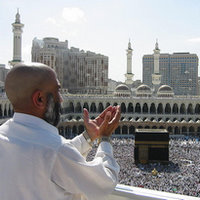A recent report issued by the Chicago Council on Global Affairs highlights an enduring but growing mismatch between how America conducts its foreign policy and how the world beyond the West is spiritually evolving. Describing what the newspapers immediately dubbed a "God gap," the report (.pdf) decries Washington's "uncompromising Western secularism" as a self-imposed obstacle to broadband engagement of religious groups and parties in emerging economies and failed states. This, despite the fact that many of these religious actors are playing leading roles in facilitating their societies' embrace -- or driving their rejection -- of globalization's numerous opportunities and challenges.
I could not agree more with the council's findings. The U.S. government has long operated under the assumption -- driven largely by Western Europe's post-World War II evolution -- that modernity inevitably leads to secularism. This may be true in a long-term sense but is certainly incorrect when talking about traditional societies suddenly thrust into globalization's liberating embrace.
Collectively, the planet is plunging headlong into a deeply religious century, in large part because globalization is rapidly changing people's economic and social circumstances. When that happens, individuals naturally grasp for sources of stability in their lives, whether it be a more conservative political regime or a seemingly unshakable religious faith. It's simply a question of seeking balance in tumultuous times.

